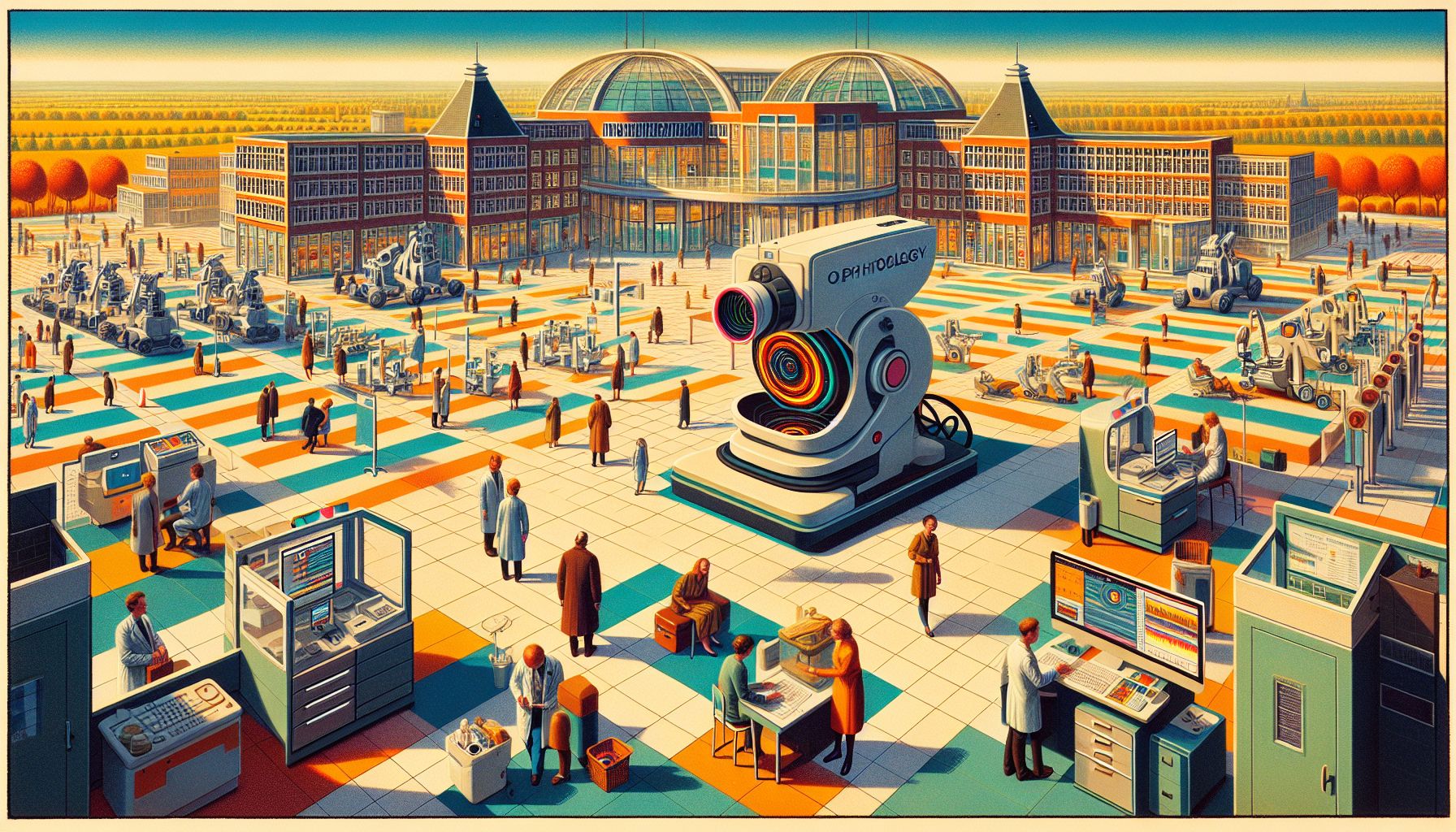Dutch Hospital Pioneers AI Integration in Healthcare

Den Bosch, Thursday, 27 June 2024.
Jeroen Bosch Hospital leads the way in AI adoption, implementing innovative projects in ophthalmology, speech recognition, and appointment scheduling. The symposium highlighted the importance of collaboration and continuous learning in leveraging AI to enhance patient care and operational efficiency.
AI in Ophthalmology and Speech Recognition
Jeroen Bosch Hospital (JBZ) has been at the forefront of integrating AI into various medical practices. One of the prominent projects highlighted at the symposium was the use of AI in ophthalmology. AI algorithms are being developed to assist in diagnosing and treating eye conditions, potentially increasing the accuracy and speed of diagnoses. Additionally, JBZ is testing AI-driven speech recognition systems with patients, aiming to streamline communication and documentation processes within clinical settings.
Algorithm for Predicting No-Shows
Another significant AI initiative at JBZ involves the development of an algorithm designed to predict patient no-shows for appointments. This predictive tool aims to enhance hospital efficiency by reducing the number of missed appointments, thereby optimizing scheduling and resource allocation. Project Leader Lisa Aukema emphasized that this innovation could significantly improve operational workflows and patient care delivery at JBZ.
The Role of Data and Collaboration
Egge van der Poel, a data and technology expert, spoke about the critical role of data in addressing complex healthcare challenges. He underscored the importance of collaboration and continuous learning, drawing parallels to historical scientific discoveries that were achieved through diverse perspectives and teamwork. Van der Poel’s insights reinforced the symposium’s theme that leveraging AI in healthcare requires a multifaceted approach involving data sharing and interdisciplinary cooperation.
Implementing AI in Pathology and Genetics
Steef Kurstjens, AIOS Clinical Chemistry, and Anoeska Schipper, Data Scientist, shared their experiences with AI applications in pathology and genetics at JBZ. They detailed how AI is being used to detect tumors in pathology and diagnose genetic disorders, showcasing the potential of AI to revolutionize diagnostic processes. This integration not only enhances diagnostic precision but also expedites treatment planning, thereby improving patient outcomes.
Strategic Integration and Culture Change
Cardiologist and CMIO Janet van Kuilenburg discussed the strategic integration of AI at JBZ, highlighting the challenges and requirements for successful implementation. Van Kuilenburg emphasized the necessity of a culture change within the hospital, advocating for comprehensive training and support for healthcare professionals to adapt to AI technologies. She also highlighted ongoing projects aimed at reducing administrative burdens through AI-driven documentation assistants and improving the accuracy of ECG assessments.
Conclusion and Future Directions
The symposium at Jeroen Bosch Hospital underscored the transformative potential of AI in healthcare, emphasizing the need for collaboration, continuous learning, and strategic implementation. By integrating AI into various medical fields, JBZ is setting a precedent for other healthcare institutions to follow. The hospital’s commitment to innovation and efficiency promises to enhance patient care and streamline operational processes, marking a significant step forward in the digitalization of healthcare.
Bronnen
- www.dutchcowboys.nl
- www.jeroenboschziekenhuis.nl
- www.jeroenboschziekenhuis.nl
- www.ed.nl
- den-bosch.nieuws.nl
- icthealth.nl

